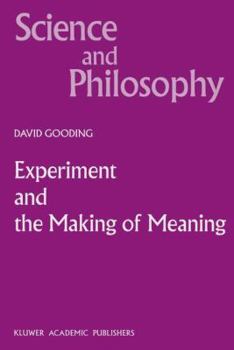Experiment and the Making of Meaning: Human Agency in Scientific Observation and Experiment
Select Format
Select Condition 
Book Overview
. . . the topic of 'meaning' is the one topic discussed in philosophy in which there is literally nothing but 'theory' - literally nothing that can be labelled or even ridiculed as the 'common sense view'. Putnam, 'The Meaning of Meaning' This book explores some truths behind the truism that experimentation is a hallmark of scientific activity. Scientists' descriptions of nature result from two sorts of encounter: they interact with each other and with nature. Philosophy of science has, by and large, failed to give an account of either sort of interaction. Philosophers typically imagine that scientists observe, theorize and experiment in order to produce general knowledge of natural laws, knowledge which can be applied to generate new theories and technologies. This view bifurcates the scientist's world into an empirical world of pre-articulate experience and know- how and another world of talk, thought and argument. Most received philosophies of science focus so exclusively on the literary world of representations that they cannot begin to address the philosophical problems arising from the interaction of these worlds: empirical access as a source of knowledge, meaning and reference, and of course, realism. This has placed the epistemological burden entirely on the predictive role of experiment because, it is argued, testing predictions is all that could show that scientists' theorizing is constrained by nature. Here a purely literary approach contributes to its own demise. The epistemological significance of experiment turns out to be a theoretical matter: cruciality depends on argument, not experiment.
Format:Paperback
Language:English
ISBN:0792332539
ISBN13:9780792332534
Release Date:December 1994
Publisher:Springer
Length:311 Pages
Weight:1.03 lbs.
Dimensions:0.7" x 6.1" x 9.2"
Customer Reviews
0 rating





